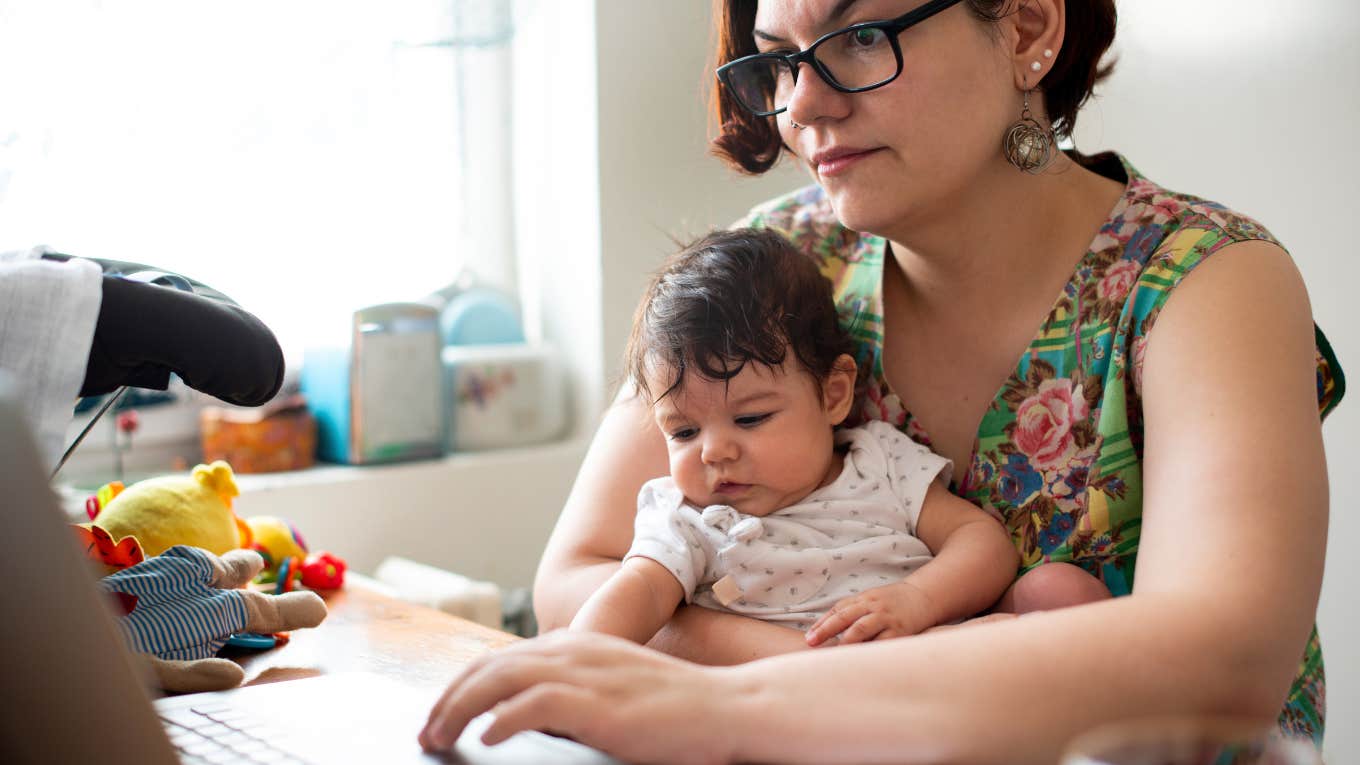Why Gen X Mommy Bloggers Were The First True Influencers
Gen X introduced an authenticity to blogging that paved the way for content today.
 Stock Rocket / Shutterstock
Stock Rocket / Shutterstock Taylor Lorenz is a technology columnist for The Washington Post, covering online culture. In her recently published book, “Extremely Online: The Untold Story of Fame, Influence, and Power on the Internet," Lorenz looks at the various ways we exist online.
In an interview with NPR, Lorenz proclaimed that “the emergence of this whole internet economy” is a force that’s “shaping everything to the point that everyone today is extremely online.” She believes that the internet defines the world we live in, pointing to online attention as “the most powerful form of modern currency… If you have enough online attention, you can literally do anything.”
In her book, Lorenz interprets generational approaches toward online authenticity, maintaining that the origins of unfiltered content creation came from Gen X’s mommy bloggers.
While Gen Z and Gen X interact with the internet differently, both generations show up online in a way that’s authentic to them.
Part of Lorenz’s perspective on how different generations present their online selves hinges on the idea that Gen X mommy bloggers paved the way for current-day content creators to be their most authentic selves online. During her NPR interview, Lorenz stated, "The earliest content creators were really, I would argue, the mommy bloggers: the Gen X moms.”
 Photo: Polina Tankilevitch / Pexels
Photo: Polina Tankilevitch / Pexels
Gen X mommy bloggers “had an ability to be real and authentic and talk about these really taboo, tough subjects that, at the time, absolutely no one in traditional media would ever even acknowledge,” Lorenz claimed. Topics like “postpartum depression, addictions, drinking wine at your child's daycare pickup, not always loving your kids or having problems breastfeeding" were part of mommy bloggers’ lived experiences that they shared with their online audiences.
"Those women were being so graphic and real and breaking stereotypes of what women should be and how women should speak about motherhood,” Lorenz explained.
In 2007, YourTango’s own Jill Krause founded an award-winning blog on parenting and pregnancy called Baby Rabies. While she’s not officially part of Gen X, explaining that she identifies as “a geriatric millennial, so just behind them,” she noted that “it's incredible when I think about how this group of women, just a bit older than me, a bit further along in their motherhood journeys, created a space for me to step into that I never even knew to look for.”
“We didn't say we wanted to grow up to be bloggers, content creators or influencers (or YouTubers) back then. For many years, and even still, people called us ‘mommy bloggers’ to belittle us and what we did,” Krause explained. “There was a solid decade of women getting creative, working with brands, making money because of the authentic connections we tirelessly built with our loyal audiences, working incredibly hard— All the while having to prove that what we did was actually a job.”
“Now, because of those early ‘mommy bloggers,’ there's an entire industry built around influencers and the real value and power they have,” Krause concluded.
In between Gen X and Gen Z, Millennials interacted with the internet in a very different way, opting for a more curated look over the messiness of being real.
It could be argued that the way Gen Z presents their online lives is a reaction to the perceived perfection that Millennials tried to uphold.
 Photo: cottonbro studio / Pexels
Photo: cottonbro studio / Pexels
Of course, no matter how online anyone is, there still exists a separation between someone’s “real” life and the version of their life that they show online. Lorenz holds that even Gen Z’s out-of-focus, photo-dump style is, in a sense, curated.
"Not to hate on Gen Z, but I do think some of it is just as curated as the Millennial Pink [wall],” she explained. “It's like, let me get the perfectly disheveled aesthetic for my TikTok to make sure that I go viral.”
Yet whether the aesthetics are curated or not belies the larger point. These days, people use their online personas to tackle difficult topics, like mental health and the darker sides of parenting. The openness that Gen X utilized created a space that didn’t exist before, one that Gen Z and beyond will continue to change.
Alexandra Blogier is a writer on YourTango's news and entertainment team. She covers parenting, pop culture analysis and all things to do with the entertainment industry.
